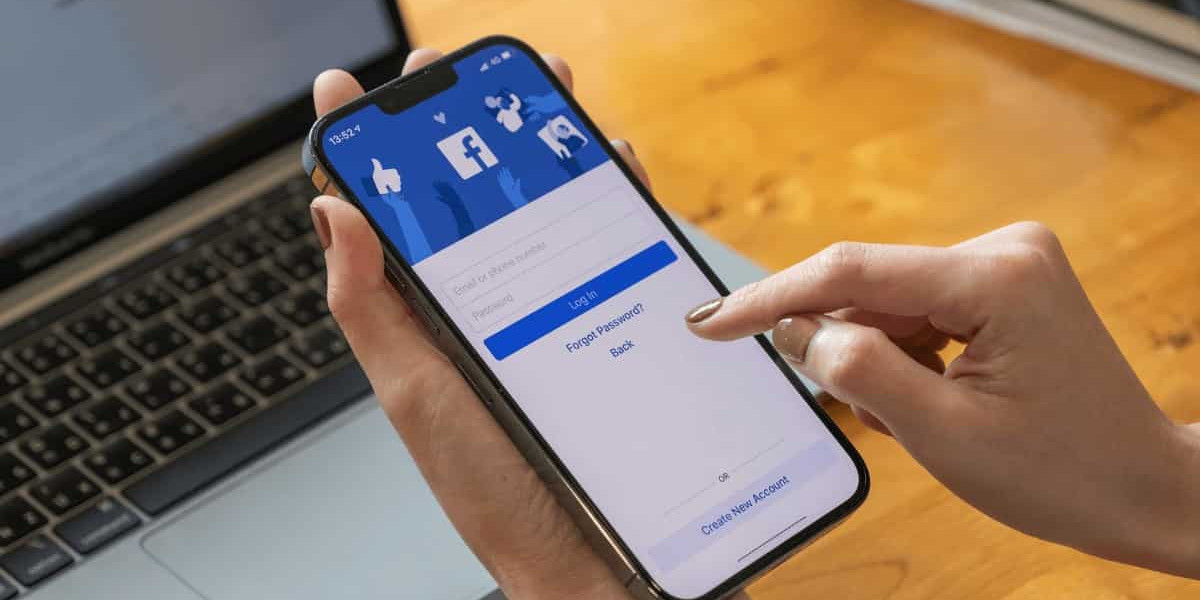Facebook Marketplace is a convenient platform within Facebook that allows users to buy, sell, and trade goods and services within their local communities.
Yes, Facebook Marketplace is a feature within the Facebook platform that allows users to buy, sell, and trade goods and services with people in their local communities. It operates as a virtual marketplace where users can browse listings, connect with sellers or buyers, and arrange transactions.
Users can list a variety of items, including furniture, electronics, clothing, and vehicles, making it a versatile platform for peer-to-peer commerce.
While Facebook Marketplace offers convenience and a wide range of products, users are advised to exercise caution and be vigilant about potential scams, as transactions are typically arranged directly between buyers and sellers without Facebook's direct involvement in payment or delivery.
Facebook marketplace users can list items for sale, browse available products, and communicate with sellers/buyers through Facebook Messenger to arrange transactions.
The Rise of Scams on Facebook Marketplace
- Statistics on scams: According to reports, online scams have seen a significant increase, with Facebook Marketplace being a common platform for fraudulent activities.
- Real-life stories of victims: Numerous victims have shared their experiences, shedding light on the various tactics scammers employ to deceive unsuspecting users.
Purpose of the Article
- Educate readers on common scams: This article aims to inform readers about the prevalent scams on Facebook Marketplace and how to recognize them.
- Provide actionable steps to recover and protect oneself: We will explore the immediate steps to take if scammed and discuss preventive measures for future protection.
Recognizing Scams on Facebook Marketplace
A. Common Types of Scams
- Overpayment scams: Scammers overpay the seller with a fake check and ask for a refund of the excess amount.
- Fake payment confirmation: Fraudsters send counterfeit payment confirmation emails, tricking sellers into shipping goods before receiving payment.
- Non-delivery of items: Buyers pay for items that are never delivered, and the scammer disappears.
B. Red Flags to Look Out For
- Suspicious user profiles: Fake profiles often have limited information, few friends, and recent creation dates.
- Pressure tactics: Scammers may rush victims into making decisions, claiming limited availability or urgency.
- Too good to be true deals: Extremely low prices or unbelievable offers are often bait to lure victims.
Immediate Steps to Take After Getting Scammed
A. Contacting the Seller
- Attempting to resolve the issue: Reach out to the seller to discuss the problem and seek resolution.
- Collecting evidence of communication: Preserve all messages, emails, and transaction details for future reference.
B. Reporting to Facebook
- How to report a scam: Use the “Report” feature on the item listing or user profile to notify Facebook of suspicious activity.
- What to expect after reporting: Facebook will investigate the report and take appropriate action, which may include removing listings or banning users.
C. Contacting Your Bank or Payment Provider
- Initiating a chargeback: Contact your bank immediately to dispute the transaction and initiate a chargeback.
- Reporting fraudulent activity: Report the scam to your payment provider to prevent further fraudulent transactions.
Legal Recourse Options
A. Filing a Police Report
- When to file a report: If you’ve suffered significant financial loss or if the scammer is local, filing a police report is advisable.
- What information to include: Provide all available information, including communication records, transaction details, and user profiles.
B. Small Claims Court
- Determining if it’s a viable option: Evaluate the financial loss, time, and effort involved to determine the feasibility of pursuing a small claims case.
- The process of filing a claim: Research the small claims process in your jurisdiction, file the necessary paperwork, and attend the court hearing.
Protecting Yourself from Future Scams
A. Safe Online Shopping Practices
- Verifying sellers: Conduct thorough research on sellers by reviewing profiles, ratings, and feedback.
- Using secure payment methods: Avoid wire transfers and use secure payment options like credit cards or PayPal.
B. Setting Up Alerts
- Monitoring bank and credit card statements: Regularly review your statements for unauthorized transactions and set up alerts for unusual activity.
- Using fraud alert services: Subscribe to fraud alert services for real-time notifications of suspicious activities on your accounts.
C. Educating Yourself on Emerging Scams
- Staying informed through reliable sources: Follow reputable online safety websites, forums, and news outlets for updates on emerging scams.
- Joining community forums and groups: Participate in online communities to share experiences and learn from others.
20 Tips On How to Avoid Facebook Marketplace Scams as a Seller
Verify Buyer Profiles: Check the buyer's Facebook profile for authenticity, looking for a history of posts, friends, and activity.
Use Secure Payment Methods: Accept payments through secure methods such as PayPal or credit cards, and avoid wire transfers or gift cards.
Meet in Public Places: For local transactions, meet buyers in well-lit, busy public places and avoid sharing your home address.
Bring a Friend: When meeting a buyer in person, bring a friend along for added safety.
Communicate Through Messenger: Keep communication within Facebook Messenger to maintain a record of conversations.
Avoid Overpayment Scams: Be wary of buyers who overpay and ask for a refund of the excess amount.
Check Buyer Reviews: If available, read reviews and ratings of the buyer on their profile.
Don’t Share Personal Information: Avoid sharing personal information such as your phone number, email, or bank details.
Use Cash for In-Person Transactions: When appropriate, accept cash to avoid chargeback scams.
Confirm Payment Before Shipping: Ensure that the payment is received and cleared before shipping the item.
Be Skeptical of Rushed Buyers: Beware of buyers who pressure you to make quick decisions or complete transactions rapidly.
Research Pricing: Know the value of your item to avoid pricing scams and unrealistic offers.
Keep Records: Maintain records of all communications, transactions, and receipts.
Report Suspicious Behavior: Report any suspicious users or activities to Facebook immediately.
Stay Informed: Regularly update yourself on common scams and tactics used by fraudsters.
Use Facebook Marketplace Features: Utilize built-in features like Facebook Pay for added security.
Ask Questions: Engage buyers with questions to gauge their sincerity and knowledge about the item.
Trust Your Instincts: If something feels off, trust your gut feeling and proceed with caution.
Enable Two-Factor Authentication: Secure your Facebook account by enabling two-factor authentication.
Educate Yourself on Scam Tactics: Familiarize yourself with various scam tactics to recognize red flags and protect yourself effectively.
20 Tips On How to Avoid Facebook Marketplace Scams as a Buyer
Verify Seller Profiles: Check the seller’s Facebook profile for authenticity, looking for a history of posts, friends, and activity.
Research Pricing: Compare prices across different platforms to ensure you are not falling for an unrealistically low or high price.
Use Secure Payment Methods: Opt for secure payment methods such as credit cards or PayPal, and avoid wire transfers or gift cards.
Meet in Public Places: Arrange to meet sellers in well-lit, busy public places and avoid going to their homes.
Inspect the Item Before Payment: For in-person transactions, thoroughly inspect the item before making any payments.
Communicate Through Messenger: Keep all communication within Facebook Messenger to maintain a record of conversations.
Check Seller Reviews: Read reviews and ratings of the seller on their profile to gauge their credibility.
Avoid Advance Payments: Be cautious about paying in advance, especially for high-value items.
Ask for Proof of Ownership: Request documentation or proof of ownership for items that typically come with paperwork.
Request More Photos: Ask the seller for additional photos of the item from different angles to verify its condition.
Be Skeptical of Rushed Sellers: Beware of sellers who pressure you to complete transactions quickly.
Keep Personal Information Private: Avoid sharing unnecessary personal information such as your home address or financial details.
Report Suspicious Listings: Report any suspicious listings or sellers to Facebook immediately.
Stay Informed About Scams: Regularly educate yourself on common scams and tactics used by fraudsters.
Use Facebook Marketplace Features: Utilize Facebook Marketplace’s built-in features and recommendations for safe transactions.
Ask Detailed Questions: Engage sellers with detailed questions about the item to gauge their knowledge and sincerity.
Trust Your Instincts: If a deal seems too good to be true or something feels off, trust your gut and proceed with caution.
Enable Two-Factor Authentication: Secure your Facebook account by enabling two-factor authentication.
Arrange for Secure Delivery: If not meeting in person, arrange for secure and trackable delivery options.
Request a Receipt: Ask the seller for a receipt or written agreement detailing the terms of the sale.
Fake Buyers on Facebook Marketplace
Fake buyers on Facebook Marketplace are individuals who pose as interested buyers but have malicious intentions, such as scamming sellers out of money or goods. They may use tactics like sending counterfeit payment confirmations, overpaying and requesting refunds, or attempting to obtain personal information.
How to Avoid Facebook Marketplace Scams as a Seller
To avoid scams, sellers should:
- Verify the buyer’s profile and check for red flags like a recently created account or limited information.
- Communicate through Facebook Messenger and avoid sharing personal information.
- Use secure payment methods and avoid unconventional payment requests.
- Meet buyers in public places for local transactions and avoid sharing home addresses.
I Got Scammed on Facebook Marketplace, What Can I Do
Getting scammed on Facebook Marketplace can be a distressing experience, but there are several steps you can take to address the situation and prevent further loss.
Immediate Actions:
Contact the Seller:
- Reach out to the seller through Facebook Messenger to discuss the issue.
- Politely ask for a refund or resolution, but be prepared for the possibility that the seller may not respond or cooperate.
Report to Facebook:
- Use the “Report” feature on the item listing or the seller’s profile to notify Facebook of the scam.
- Facebook will investigate the report and may take action such as removing the listing or banning the scammer, but they typically do not mediate disputes or issue refunds.
Contact Your Bank or Payment Provider:
- If you paid for the item using a credit card, debit card, or online payment service, contact your bank or payment provider immediately.
- Report the fraudulent transaction and inquire about the possibility of initiating a chargeback or reversing the payment.
Legal Recourse:
File a Police Report:
- If the scam involves a significant amount of money or if you have information about the scammer’s location, consider filing a police report.
- Provide all available information, including screenshots of communication, transaction details, and the seller’s profile.
Small Claims Court:
- Evaluate whether pursuing a case in small claims court is viable based on the amount lost and the time and effort involved.
- Research the small claims process in your jurisdiction and gather all necessary documentation to file a claim.
Protecting Yourself in the Future
Educate Yourself on Scams:
- Learn about common scams on online marketplaces and familiarize yourself with red flags such as pressure tactics, too-good-to-be-true prices, and suspicious payment methods.
Verify Sellers:
- Before making a purchase, verify the authenticity of sellers by checking their profiles, reviews, and ratings.
- Be cautious of newly created profiles with limited information and activity.
Use Secure Payment Methods:
- Opt for secure and traceable payment methods such as credit cards or PayPal.
- Avoid paying with cash, wire transfers, or gift cards, especially for high-value items.
Meet in Public Places:
- For local transactions, arrange to meet sellers in well-lit, busy public places.
- Inspect the item thoroughly before completing the transaction.
Stay Informed:
- Regularly update yourself on Facebook Marketplace’s safety guidelines and recommendations.
- Join online forums and communities to stay informed about emerging scams and share experiences with other users.
While getting scammed can feel disheartening, taking proactive steps to address the issue, seeking legal recourse when appropriate, and enhancing your knowledge and vigilance can help mitigate the impact and prevent future scams.
Facebook Marketplace Scams Asking for Phone Number
Some scammers may ask for your phone number to send phishing texts, make fraudulent calls, or subscribe you to premium services. Avoid sharing your phone number with unverified buyers and be cautious of unsolicited communication.
Facebook Marketplace Scams Asking for Address
Scammers asking for your address may have intentions of identity theft, stalking, or sending phishing mail. Do not disclose your home address to buyers and arrange to meet in public places for transactions.
Facebook Marketplace Fake Buyers Reddit
Online forums like Reddit have discussions where users share experiences with fake buyers on Facebook Marketplace. These threads can provide insights, warning signs, and advice on dealing with fraudulent buyers.
How to Tell if You Are Being Scammed on Facebook Marketplace
Signs of being scammed include:
- Pressure to complete transactions quickly.
- Unusual payment requests or overpayments.
- Suspicious buyer profiles with limited information.
- Inconsistent communication and reluctance to answer questions.
Scammed on Facebook Marketplace, Police
If you’ve been significantly scammed on Facebook Marketplace, filing a police report can be a step towards legal recourse. Provide all available information and evidence to assist in the investigation.
Remember, vigilance and caution are essential when using online marketplaces. Always verify buyer information, use secure payment methods, and report suspicious activity to protect yourself from scams.
Can you get your money back if scammed on Facebook Marketplace?
Getting your money back after being scammed on Facebook Marketplace can be challenging, but it is not impossible. You should immediately contact your bank or payment provider to report the fraudulent transaction and inquire about the possibility of initiating a chargeback. Additionally, reporting the scam to Facebook can help in taking action against the scammer, although this may not directly result in a refund.
What to do after being scammed on Facebook Marketplace?
If you’ve been scammed on Facebook Marketplace, take the following steps:
- Contact the Seller: Try to reach out to the seller and resolve the issue amicably.
- Report to Facebook: Use the reporting feature to notify Facebook of the scam.
- Contact Your Bank/Payment Provider: Report the fraudulent transaction and inquire about chargeback options.
- File a Police Report: If the scam involves a significant amount of money or local perpetrators, consider filing a police report.
- Gather Evidence: Preserve all communication and transaction records related to the scam.
How can you tell if Facebook Marketplace buyers are fake?
Identifying fake buyers on Facebook Marketplace involves looking for red flags such as:
- Suspicious Profiles: Limited profile information, few friends, and recent account creation.
- Pressure Tactics: Urgency to complete the transaction quickly without proper verification.
- Unusual Payment Methods: Requests for unconventional payment methods or overpayments.
- Inconsistent Communication: Poor grammar, inconsistent information, or reluctance to answer questions.
What can a scammer do with my phone number?
With your phone number, a scammer can:
- Send Phishing Texts: Attempt to trick you into clicking on malicious links or sharing sensitive information.
- Make Fraudulent Calls: Pose as a representative of a legitimate organization to extract personal or financial information.
- Sign You Up for Premium Services: Subscribe you to premium-rate services, resulting in high charges.
- Use Caller ID Spoofing: Use your number to make calls to others, appearing as if you are the caller.
What happens if a scammer has my phone number and address?
If a scammer has both your phone number and address, they may:
- Attempt Identity Theft: Use the information to impersonate you and commit fraud.
- Send Phishing Mail or Texts: Send fraudulent mail or messages to trick you into revealing additional information or making payments.
- Conduct Physical or Cyber Stalking: Use the information to harass or intimidate you, either online or in person.
- Combine with Other Data: Combine your details with other data they have or can acquire to build a more complete profile for more sophisticated scams.
Can I track a scammer through phone number?
Tracking a scammer through a phone number can be difficult due to the use of technology like VoIP and caller ID spoofing, which can mask the scammer’s true location and identity. While you can report the number to your service provider and appropriate authorities, tracking and identifying the scammer typically require law enforcement intervention and appropriate legal processes.
Conclusion
A. Recap of Key Takeaways
- Recognizing scams: Awareness and vigilance are crucial in recognizing and avoiding scams on Facebook Marketplace.
- Taking immediate action: Promptly reporting scams and contacting relevant authorities can mitigate losses.
- Exploring legal recourse: Evaluate the available legal options based on the severity of the scam.
- Protecting oneself from future scams: Implement safe online shopping practices and stay informed on emerging threats.
B. Encouragement for Vigilance and Education
- The importance of staying informed: Continuous education on online safety is essential in navigating the digital marketplace securely.
- Sharing knowledge with friends and family: Spread awareness and share knowledge to protect your community from online scams.
Call to Action
A. Encourage Readers to Share Their Stories
- Building a community of informed users: Sharing experiences helps build a community of informed and vigilant users.
- Learning from each other’s experiences: Collective knowledge empowers users to recognize and avoid scams effectively.
B. Invite Readers to Subscribe/Sign Up
- Staying updated on the latest scams and protection tips: Subscribing to updates ensures you stay informed on the latest threats and safety tips.
- Joining webinars or workshops on online safety: Participate in educational events to enhance your knowledge and skills in online safety.
Additional Resources
A. Links to Facebook Marketplace Safety Guidelines
B. Contact Information for Reporting Scams
C. List of Reputable Online Safety Websites and Forums
Interestingly, by following the guidance provided in this article, readers can navigate Facebook Marketplace with increased awareness and security, reducing the risk of falling victim to scams.



